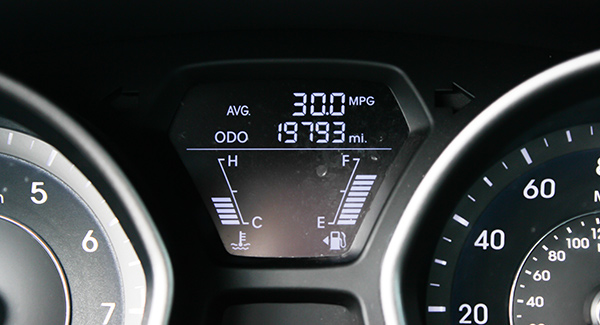- Editorial Team
Insurers will ask you to declare your annual mileage when you apply for car insurance. This is because the estimated annual mileage on your vehicle is a relevant factor in determining how much you pay for car insurance.

In general, the more you drive, the more you’re likely to pay for your car insurance because there is a greater risk of you being involved in an accident and making a claim.
Knowing how many miles you will drive over the year can be difficult. However, if you realise your mileage will be higher than expected, inform your insurer as soon as possible so they can amend your policy and adjust the premium accordingly.
In some cases, where there is a significant mileage discrepancy, this could be seen as mileage misrepresentation. As a result, a claim may be refused, and your insurance policy could be cancelled. So, try to be as accurate as possible with your mileage estimate.
What is the average mileage in the UK?
The average mileage in the UK is falling each year. According to the Department for Transport, private cars travelled an average of 5,300 miles in 2021, down from 6,800 miles the previous year. Higher petrol prices and home working arrangements contribute to this reduction in mileage, as people choose to drive less.
How to estimate your mileage?
There are various ways you can estimate your annual mileage. You can refer to your MOT certificate, which will tell you how many miles you drove the previous year. Alternatively, you can use the MOT checker on GOV.UK.
You can also track your weekly mileage for a week and multiply the number by 52. However, this method won’t account for changes in your mileage, for example, extra mileage from holidays and road trips or lower mileage from home working arrangements instead of travelling to the office.
Do insurers check mileage?
Insurance providers routinely check mileage through manual and automated processes to ensure the cost of insurance premiums is accurate.
What is the best annual mileage for insurance?
There’s no definitive answer regarding the best annual mileage for insurance. Providers consider various factors like age, occupation, address, the make and model of your vehicle, and driving history, which can affect the cost of your car insurance.
What happens if you go over your annual mileage?
Mileage is one of many factors used to calculate the cost of car insurance, so it is important to be as accurate as possible when declaring your annual mileage. However, some insurers may allow you to adjust your mileage if you underestimate it.
However, if you significantly underestimate your mileage or deliberately mislead the insurer, a claim may be refused, and your insurance could be cancelled.
Is car insurance cheaper if you do low mileage?
Driving fewer miles could result in lower premiums, but this depends on the provider and type of insurance policy you have.
If you drive fewer miles, you could consider a low-mileage policy. For example, a telematics policy involves fitting a small device into your vehicle, which measures your driving behaviour and collects information about your car’s mileage. If you drive safely, your premium may be reduced at renewal.
Similarly, you could consider a specialist vehicle policy if you own and occasionally drive a classic car.
Final thoughts
It’s essential to have an accurate understanding of how many miles you drive, as this will affect the price you pay for insurance. Whatever your mileage, it’s worth shopping around to find the right policy for you.
Share this article
Table of Contents
More posts

Understanding Road Crossings, Puffin, Pelican & Zebra | A Choice

A Guide On How To Tax A Car | A Choice

Do Black Boxes Have Nighttime Driving Restrictions?
